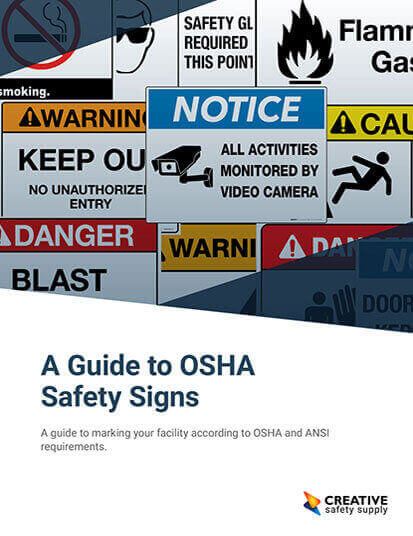
Workers are entitled to a safe workplace under federal law, and in turn employers must comply with OSHA standards and provide employees with a workplace that does not have any serious hazards. OSHA can enforce their regulations by conducting scheduled inspections or inspections following a serious injury or fatality in the workplace. Regulations that are violated can also be enforce with a punishment ranging from a fine up to a six-month jail sentence.
Federal Regulations
OSHA has set forth federal standards grouped into the following four categories regarding industries: general industry, construction, maritime, and agriculture. Some standards are industry specific, while others are standards across all industries. Similar requirements across the four categories include the following three standards:
- Access to medical and exposure records,
- Personal protective equipment and,
- Hazard communication.
A requirement that spans across nearly all workplaces is the requirement to display (and keep posted) the OSHA “Job Safety and Health: It’s the Law” poster. All industries also need to properly train their employees, and to keep records of training, incidents, fatalities and results of tests.
Another important standard covered by OSHA is the employee’s right to file a complaint with OSHA regarding the conditions in their workplaces; in many cases these employees have the right to have their identities kept confidential from employers. Employees also have the protection to not be retaliated or discriminated against if they do seek out OSHA’s help.
The OSHA Act provides coverage for most private sector employers and their workers, in addition to some public sectors and workers. Coverage spans all 50 states as well as territories and jurisdictions including the District of Columbia, Puerto Rico, the Virgin Islands, American Samoa, Guam, Northern Mariana Islands, Wake Island, Johnston Island, and the Outer Continental Shelf Lands. Those not covered under the OSHA act are self-employed workers, family members of farm employers, and workplaces regulated by a different federal agency.
Similar Questions
- What does OSHA stand for?
- What agency of government is OSHA in?
- Who is OSHA meant to protect?
- How are violations reported to OSHA?
- What OSHA posters are required?
- What does it mean to be OSHA compliant?
- What are OSHA’s requirements when it comes to PPE?
- How does OSHA affect a business?
- When was OSHA developed?


